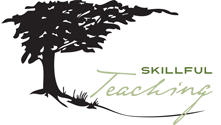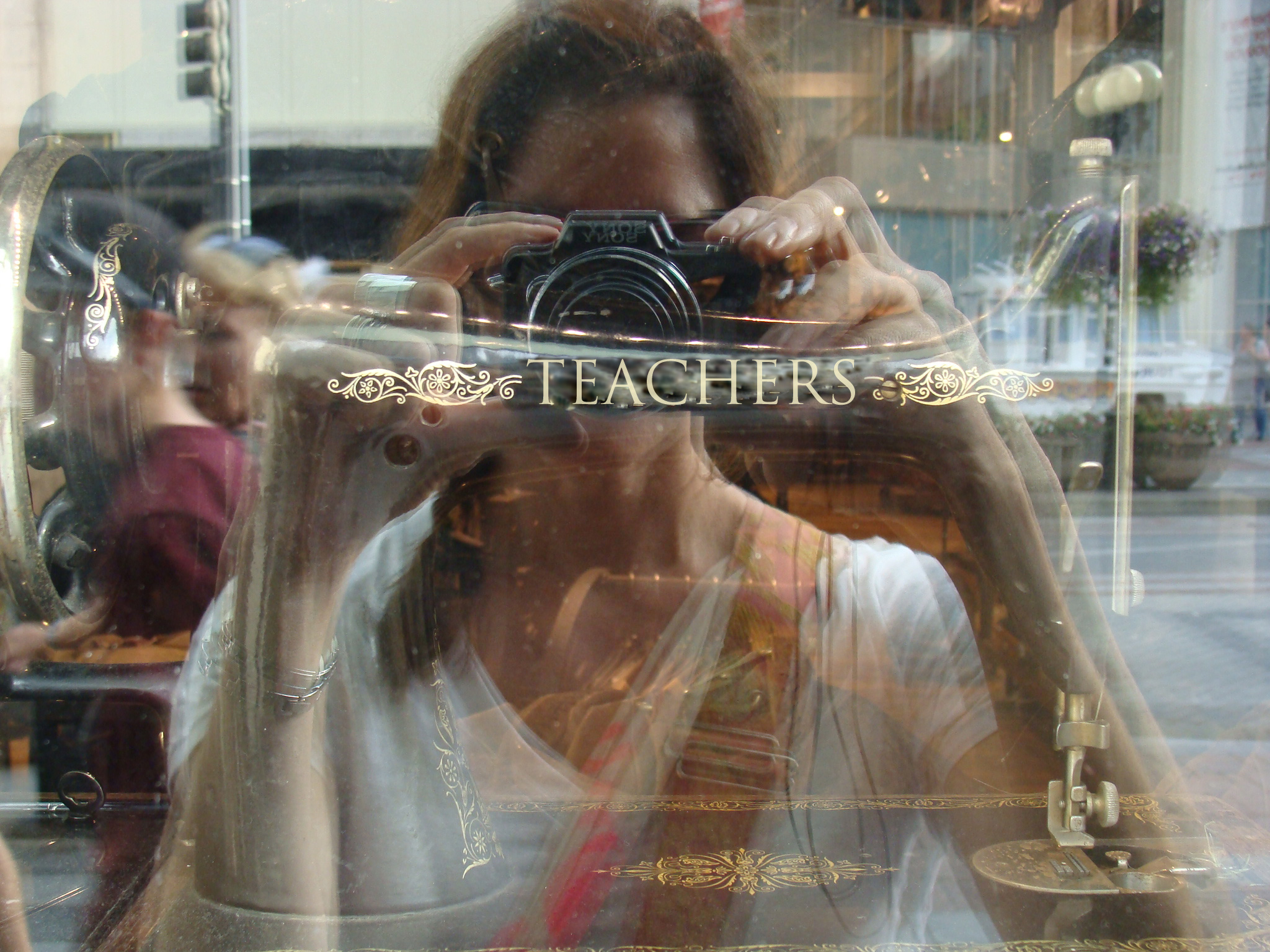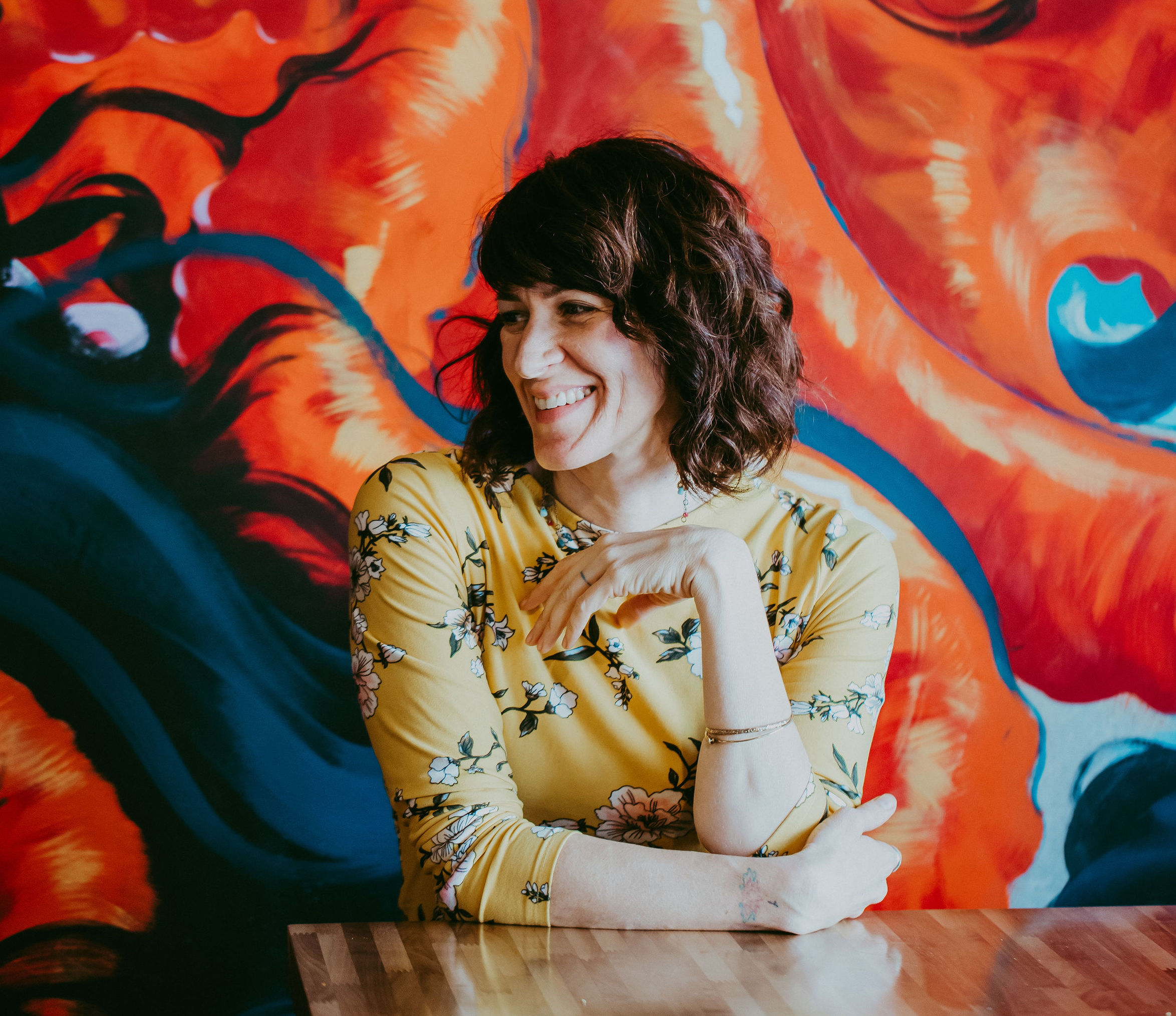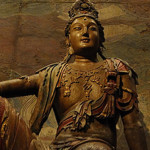Authentic Presence
It was muggy. Sweat, stale and new, mingled and charged the air. My anonymity made me feel safe. I could hide behind the veil of having no past and no present with these students, relieved that few looked up when I passed them on the treadmills. The students were preoccupied with watching Oprah or mouthing the words to a favorite song. I walked to the locker room more out of not knowing where the classroom was located, and trying not to show it, than for any real need.
I walked to the locker room, set my bag and mat down, looked around anticipating that the next moment of truth would reveal itself and I would inevitably move forward with the best course of action. I simply stood, could feel my heart thumping, the flurry of moths in my belly, throat lumpy and hard. Class started in 15 minutes, which was enough time to get the room set up but too much time to sit and wait. I was filled with a purposeful yet false confidence. I was wearing my anticipation like an undergarment in snowy weather. The fear lingering was that of the unknown. My fear was conjured out of nothingness, like a magical sword with which to arm myself. This was my introduction to teaching.
I decided, with very little conviction, to be a teacher. I said I would do it, believed the likelihood of my success and then, at some point, determined that I had become a teacher. I suppose that was just how the process of instruction or the act of teaching was performed.. I started teaching Pilates as my first real, although self-appointed, role as educator. Today, I teach many things such as dance, yoga, anatomy, meditation, movement awareness, teaching and the alphabet to my six year old son. I imagine all of us to be teachers at some point or in some capacity, and so perhaps you have experienced the gift of offering and learning as well. Was there a time when you were both the receiver and the conduit of teaching? Was there a moment when you were the supporter and the supported, the questioner and the answerer? Teaching Pilates was my first.
My early memories of teaching are ones of anticipated challenge and unexpected joy. I was endlessly confronted by the inner struggles and questions from my past. Who am I? What gave me the right? Why would anyone care about what I was offering? What if I fail, hurt someone, say something wrong or say something right? What then? It only took one class, one reality check, before I began to calculate the risks and the possible failures. Soon after, my mind weaved thoughts of grotesque misguidance and ensuing grievances. In that same, windowless gym room, and in that first class I was forced to acknowledge the unknown. Belly down, nose planted into the mat, a student turned to look at me while smashing her cheek to the floor and asked, “What exactly are you asking us to do?” Silence. Um, what? Words lost. What am I asking her to do? With a sudden loss of confidence, I repeated the directions. “What,” she asked again while coming to her knees in order to get a better look at her prisoner. Was best casino she snarling? Was I sitting bound to a chair in a dark room with a single blaring light on my face in as means of intimidation? I would have given her what she wanted if I had it to give, but I did not have the answers, and I could not say so.
In Buddhism there is a concept called the beginner’s mind. There is a difference between choosing the beginner’s mind and entirely another outlook of being forced into the beginner’s mind by someone else. My subconscious bodyguard, her name is Ego, had that door bolted and locked. I could not dream of saying I did not know. Ego: “In teaching the first thing you must do is impress confidence.” She crossed her arms firmly and glared. But was I not instilling confidence? Why should I not have all the answers? Was I “allowed” to admit that I did not have all the answers. So, for the first year I simply clutched any possible answer: right, semi-right, maybe sort of right or really stretching it. It was an unsatisfying beginning, yet, I embraced the reality and moved into the practice of teaching. Swept off my feet like a lustful young lover, I fell completely and blindly, acutely aware of my lack of skillfulness, but not stopping to heed it. By the completely selfish impulse I deemed myself something I never imagined I would be.
I have neither an explanation for why I chose to stick with the process nor will I presume some gifted sense of self-awareness as a reason. Trust or faith and inspiration blossomed under tender ground while one foot was put in front of the other and gradually, joy sprang up/blossomed. For the first few months – and with all honesty into the first several years – there was a constant stream of critical thought of unfamiliar feelings, questions, insights, and intense self-doubt. I held the responsibility to guide, and motivate my students who put themselves and their trust in my hands. Could I do it and would I be successful? Some days I was, and at other times I was not. Every moment in class echoed a scratching, scathing voice repeating, “Any second now you’ll be found out. Fraud. Fraud.” Some days a class would end and I would sink into the floor, into myself, beaten by all the answers I did not have, the change I could not affect, the body I could not reveal. On those days, I was determined to do whatever it took to become better and stronger. Some days I glowed as evidenced by the students purring after class. What a difference I made: breakthrough, discovery, ease found and restored. I was their guide and their reflection. It was light and shadow, reward and payment.
This was the first reflective glimpse of myself, my first gleam of keen awareness, both of my mind and behavior. Never had I been so much in front of myself. I had chosen a road with a “No U-Turn” sign. I did not always like what I saw, but teaching allowed an understanding that there was more to me than I was used to seeing and being. That filled me up.
Equally matched by my experience of myself was my experience of my students. Had I ever really looked at someone’s body, noticed their fear in their movement, questioned their motivation, or asked someone to purposefully and intentionally trust me? The answer is, of course, never, and I was more frightened by this realization than any other aspect of teaching. How could I ask for the trust of someone else when I did not trust myself.
But I trusted the process of teaching and learning – what I learned and witnessed from the students with their ability to know their bodies and minds more fully helped me fall into the next level of teaching. To witness less pain, greater ease, vitality and strength was fuel, white hot and singularly focused. Week after week of practice lead not only to opening of the student’s bodies but in their perceptions of themselves. Teaching Pilates was more than teaching Pilates. Teaching Pilates offered and opened the doors to unanticipated rewards.


 How are you showing up? Why are you showing up? Why do you teach? What IS teaching? Why do you care? This is Skillful Teaching: A Whole-person approach to being an expert teacher, not an expert technician. There's a difference. Want to know what it is?
How are you showing up? Why are you showing up? Why do you teach? What IS teaching? Why do you care? This is Skillful Teaching: A Whole-person approach to being an expert teacher, not an expert technician. There's a difference. Want to know what it is?